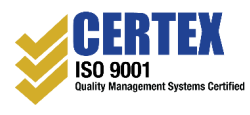Are you a meerkat or an ostrich? The future profile of an accountant

In the animal world, an ostrich will run and hide and avoid a problem, while a meerkat will sit up, scan the horizon to watch for danger and look for ways to address the risks and adapt.
Why are we giving you a little lesson on the animal world? No, we aren’t going to talk about animal husbandry – we’re going to use it as an analogy to describe the current environment within accounting.
Please pardon us for trivialising such an important topic, but it’s a true reflection of the present market.
We’ve all read the latest research surrounding the future world of work. While the exact figures differ pending which research you read, they all have one thing in common: accountants are under threat and robots are to blame.
Why are we giving you a little lesson on the animal world? No, we aren’t going to talk about animal husbandry – we’re going to use it as an analogy to describe the current environment within accounting.
Please pardon us for trivialising such an important topic, but it’s a true reflection of the present market.
We’ve all read the latest research surrounding the future world of work. While the exact figures differ pending which research you read, they all have one thing in common: accountants are under threat and robots are to blame.
Just recently The Economist said 94 per cent of the responsibilities of accountants and auditors will be completed by robots in 20 years’ time. Interestingly, recreational therapists are safe with only 0.003 per cent to be affected in the future.
Earlier this year, the Minister for Communications released a CEDA report on the Future of the Australian Workforce. The report discusses how although new technologies will without a doubt create job losses, there will be new jobs created in other areas. Therefore, it’s likely there will be a similar amount of accounting jobs in 20 years’ time, but the responsibilities of an accountant will look distinctly different.
The facts are we all know the role of an accountant is going to change, but what is not being discussed is how to stay ahead of the pack and be well placed for the new jobs that will be created.
Combined, we have 20 years of experience in recruiting in this space and we speak to clients and candidates within our field every day.
The way we see it, accountants have two options. Either retrain as recreational therapists or start sitting up and working out how they will be able to provide more than the automated processes of robots and become a valuable business advisor for future employers.
Everyone is reading and hearing of the latest research mentioned before, which is very directed at accountants, but the way they respond is very different.
Some process the information and stick their head in the sand: the ostrich-like mentality. And yes we know, in reality ostriches do not bury their heads in the sand – they lie low at the approach of trouble and press their necks to the ground in an attempt to become less visible… but the effect is the same.
While others process the information and say to us ‘ok, what should I do to ensure I’m in the six per cent who are not only employable in 20 years, but highly in demand?’ Or ‘how do I find the staff who are equipped for the future and technology advances?’ This is what we call the ‘meerkat-like’ approach to the future world of accounting.
So what are the traits of a ‘meerkat’ accountant? Through sourcing high-performing talent within this field, we have observed the following traits within accountants.
A ‘meerkat’ accountant:
- Works in groups and surrounds themselves with the best in the business and field
- On their resume, they have a long list of achievements that they are proud of
- Always looking to collaborate with business partners work with the wider business and add stakeholder value
- Challenges current processes
- Realises that once you have completed a CPA, that is not the end. They embrace continued professional development and courses
- Works on their personal brand and social media profile. Is visible and happy to provide commentary and expert opinions when called upon by their industry
- Happy to work in partnership with recruiters and plan a strategic job search. They don’t just want a job on Seek, they want the best job for them
- Embraces technology, are up-to-date with cloud technology and have a list of systems-related achievements and courses on their resume
- Embraces advancing technologies and uses it to their advantage
- Is knowledgeable about their specialism and know what competition and predators are out there
- Actively networks and is a member of relevant institutions.
An ‘ostrich’ accountant:
- Sticks to the same methods and does things the same way they have always done
- Resistant to change, looks to stay in the same industry
- Doesn’t have many achievements on resumes and not comfortable selling themselves
- Avoids networking, knows they ‘should do more’ but only does so when forced
- Doesn’t invest time with recruiters; just looks for a change and doesn’t put much thought into it
- Is being overtaken by technology; fears LinkedIn and media.
- If we compare the meerkat (no advertising pun intended) and the ostrich, it seems obvious which is likely to become the most resilient in the future.
Questions you need to ask yourself:

- Are you a meerkat or an ostrich?
- What steps are you taking to become more like a meerkat?
- The role of an accountant is going to change, so how are you going to ensure you remain indispensable, redefine yourself and stay ahead?
Ben Suddaby and Toby Walsh are Consultants with Davidson Corporate.
Share this content







